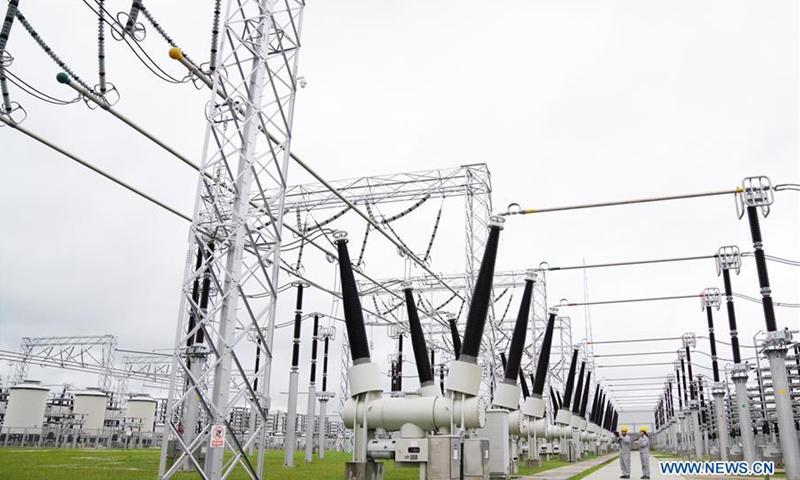
File photo:Xinhua
South China's manufacturing powerhouse Guangdong Province said it will widen the peak-to-valley price difference and hike peak electricity prices by 25 percent for industrial users, as multiple industry associations voiced concerns over a power shortage that threatens to weigh down industrial production in the coming months.
Guangdong Provincial Development and Reform Commission said the peak-to-valley price difference will be widened to 1.7 from a 1.65 multiplier/ratio for the peak price and to 0.38 from a 0.5 multiplier/ratio for the valley price starting from Friday.
China South Grid said the hike in peak electricity prices is for industrial users and will not apply to residential power use, according to media reports on Thursday.
The change in electricity prices in the southern China economic powerhouse happened as a shortage of electricity struck the country.
Also on Thursday, the China National Coal Association and China Coal Transportation and Distribution Association pointed out a tightening trend in coal supplies nationwide, and said that the prospect of ensuring ample supplies for the upcoming winter season, when coal demand peaks, is not optimistic.
The associations urged member companies to have a sense of importance and urgency to further tap their capacity in ensuring thermal coal supplies. The industry bodies advised timely and reasonable adjustments in coals sales to non-key enterprises, clients without long-term supply contracts and high-energy consumption users.
The China Household Electrical Appliances Association also said on Thursday that some of its member companies are complaining that the electricity rationing happening in a number of key manufacturing provinces have caused disturbances to their production, in addition to the existing woes of soaring international sea freight prices.
The association predicted rising raw materials and energy prices, as well as high sea freight prices, will continue to weigh down production, causing "tremendous disruption" to new orders and delivery in the fourth quarter.
Li Chang'an, a professor at the University of International Business and Economics' School of Public Administration, told the Global Times on Thursday that the continual rising trend in both energy and raw material prices will further weigh on industrial production.
Against the backdrop of the COVID-19 epidemic, China's manufacturing purchasing managers' index (PMI) contracted in September to 49.6, the lowest point since February 2020, data from the National Bureau of Statistics (NBS) showed on Thursday.
China's top economic planner, the National Development and Reform Commission (NDRC), said on Wednesday that China has the ability to fully ensure power supply for residential use, and announced several measures to tackle power shortages in many places around the country, including increasing coal and natural gas imports and production, emphasizing market-based pricing mechanisms for thermal power, and making plans to use energy in a sustainable and well-managed manner.
NDRC said that it will ensure a stable energy supply for the upcoming winter and spring to guarantee residential use and heating, according to a post on its official WeChat account.
Global Times




